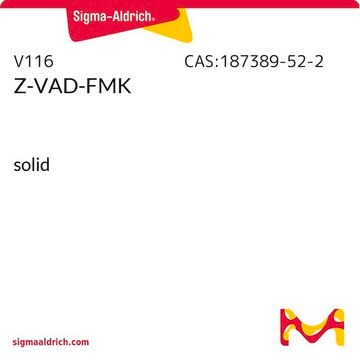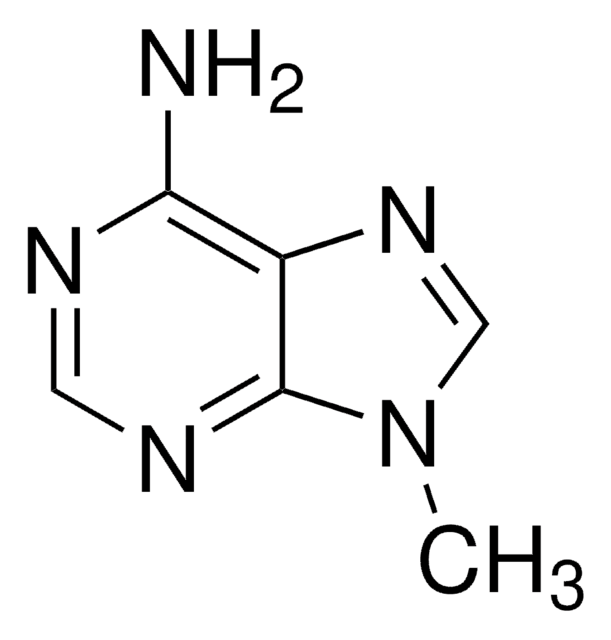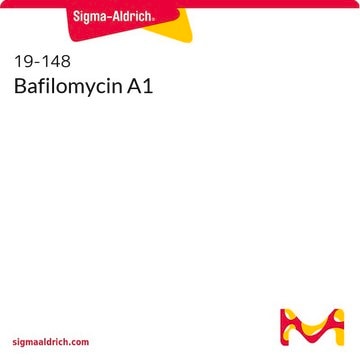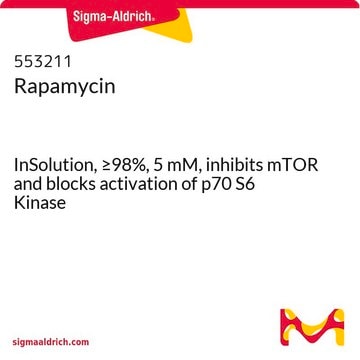M9281
3-Methyladenine
autophagy inhibitor
Synonym(s):
3-MA, 6-Amino-3-methylpurine
About This Item
Recommended Products
biological source
synthetic (organic)
Quality Level
Assay
≥99% (HPLC)
form
powder
mp
~300 °C (dec.) (lit.)
solubility
DMF: 9.80-10.20 mg/mL, clear, colorless to light yellow
SMILES string
Cn1cnc(N)c2ncnc12
InChI
1S/C6H7N5/c1-11-3-10-5(7)4-6(11)9-2-8-4/h2-3H,7H2,1H3
InChI key
FSASIHFSFGAIJM-UHFFFAOYSA-N
Looking for similar products? Visit Product Comparison Guide
Related Categories
Application
- to determine the expressions of autophagy-related genes (Beclin 1, light chain 3 (LC3) and p62) using the transfected human bone marrow mesenchymal stem cells (BM-MSCs)
- with cisplatin to study the inhibition of autophagy influenced cisplatin-induced apoptosis in A2780cp cells
- to study the interplay between colistin-induced autophagy and apoptosis
Biochem/physiol Actions
Preparation Note
Storage Class Code
11 - Combustible Solids
WGK
WGK 3
Flash Point(F)
Not applicable
Flash Point(C)
Not applicable
Certificates of Analysis (COA)
Search for Certificates of Analysis (COA) by entering the products Lot/Batch Number. Lot and Batch Numbers can be found on a product’s label following the words ‘Lot’ or ‘Batch’.
Already Own This Product?
Find documentation for the products that you have recently purchased in the Document Library.
Customers Also Viewed
Articles
We presents an article on Autophagy in Cancer Promotes Therapeutic Resistance
High titer lentiviral particles for LC3 variants used for live cell analysis of cellular autophagy.
Our team of scientists has experience in all areas of research including Life Science, Material Science, Chemical Synthesis, Chromatography, Analytical and many others.
Contact Technical Service














